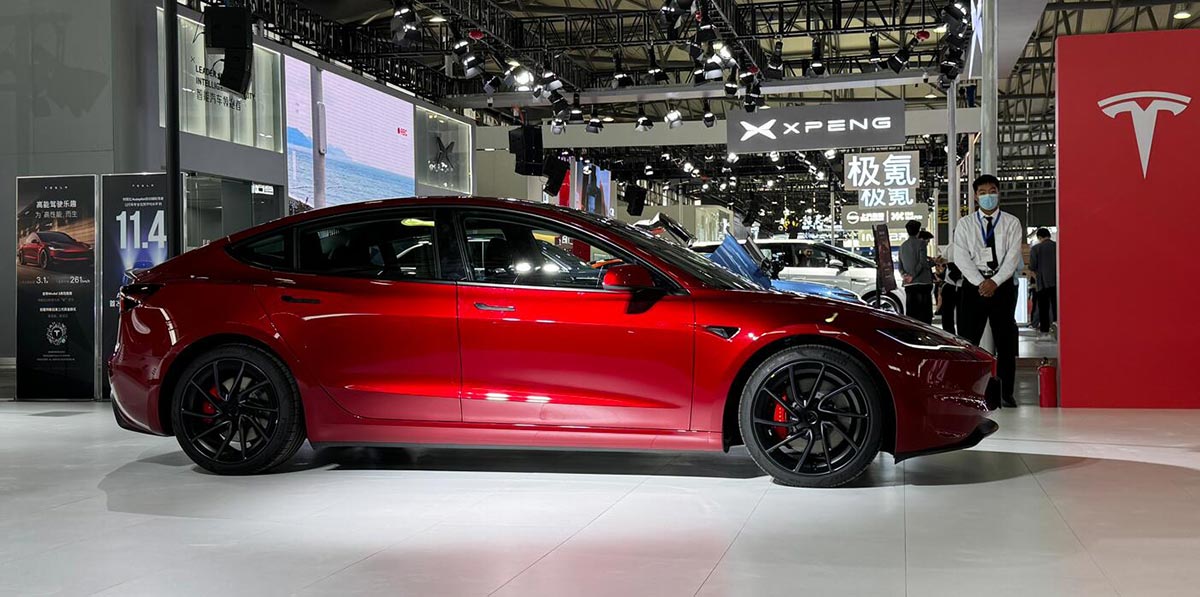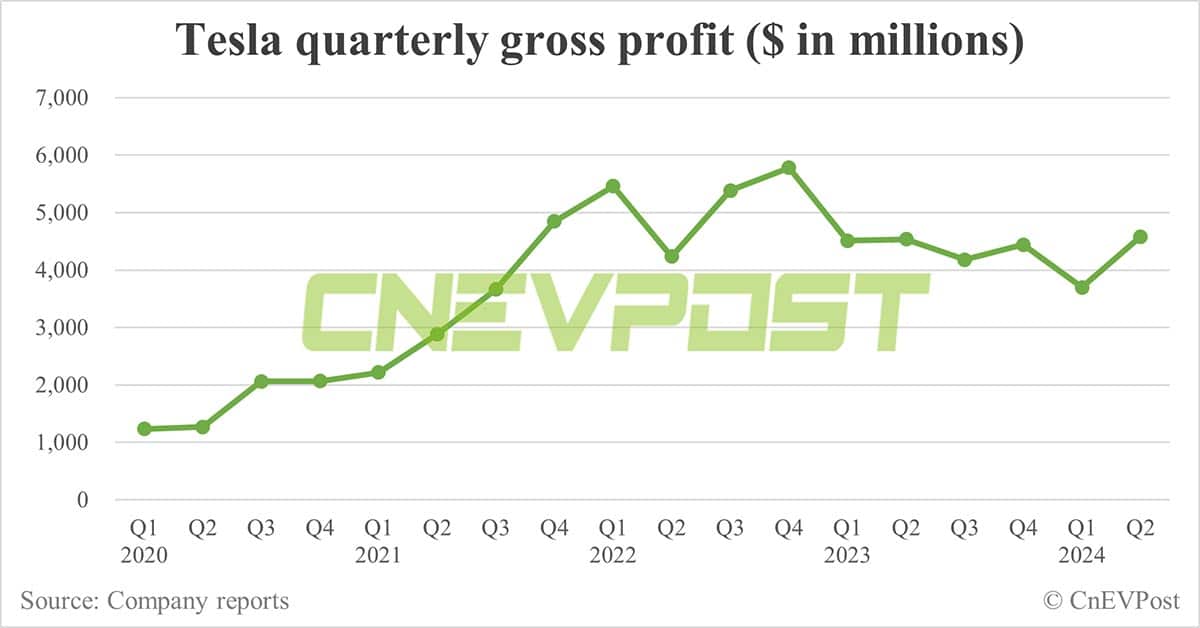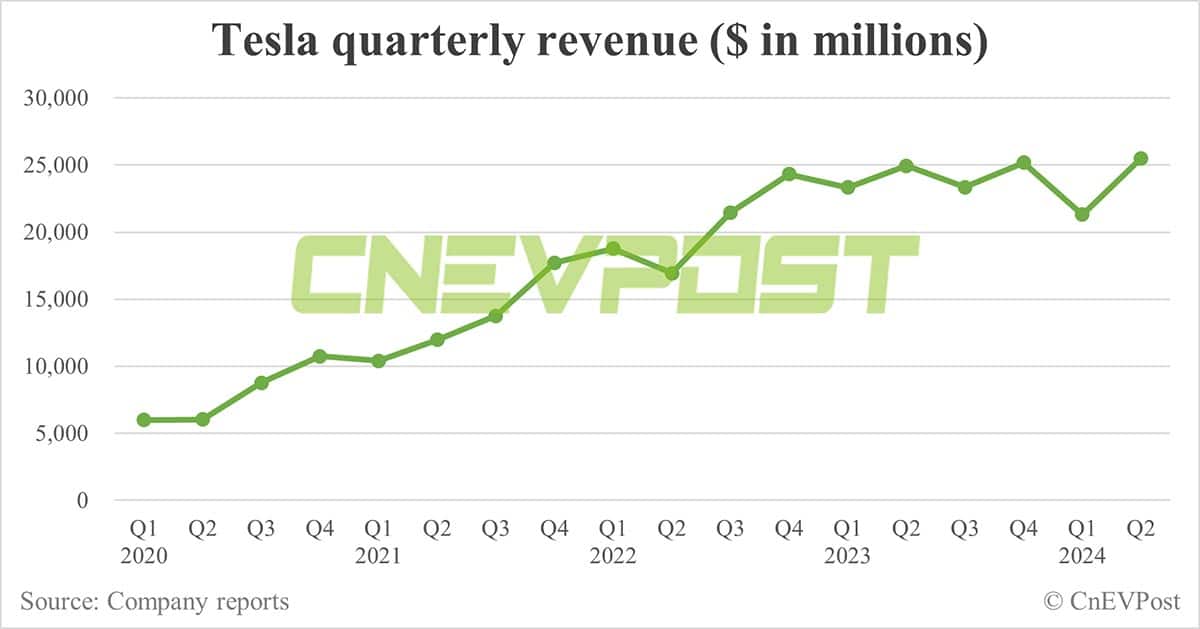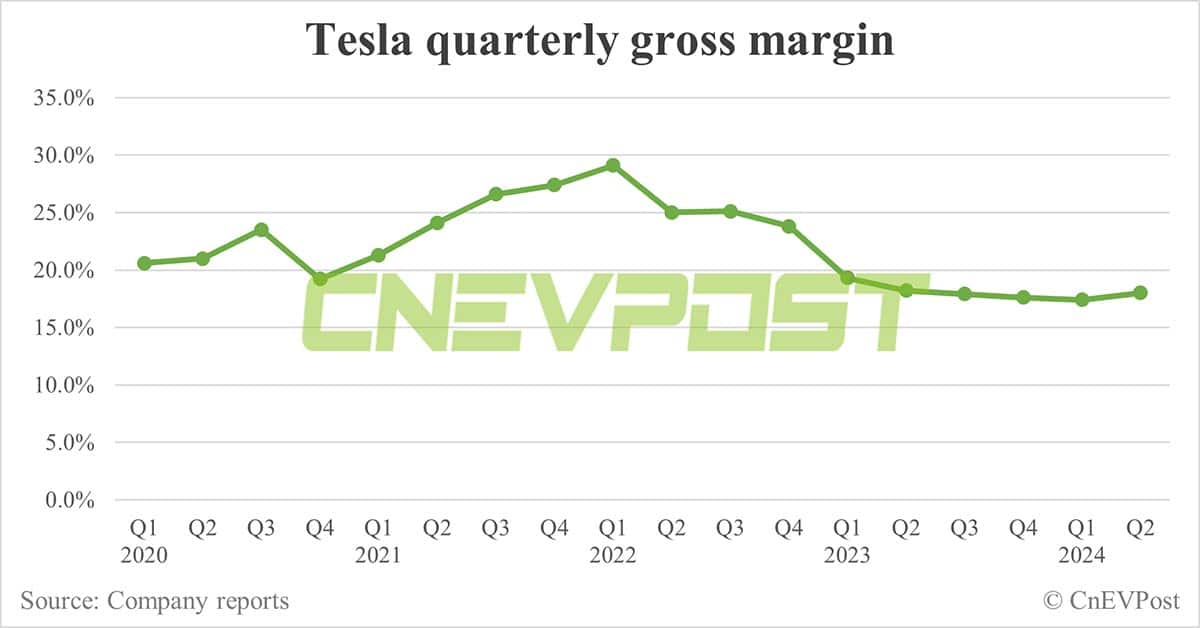Tesla is likely to get regulatory approval to launch FSD in markets such as Europe and China by the end of this year, Elon Musk said.

Tesla's (NASDAQ: TSLA) FSD (Full Self-Driving) is expected to make its way to China by the end of this year, set to make the competition in the smart driving space in the world's largest electric vehicle (EV) market more interesting.
Tesla is likely to get regulatory approval to launch FSD in other markets such as Europe and China by the end of this year, the US EV maker's CEO Elon Musk said on an earnings call earlier today.
The company reported $25.5 billion in revenue in the second quarter, up 2.3 percent year-on-year and up 19.71 percent from the first quarter. Gross profit for the second quarter was $4.578 billion, up 0.99 percent year-on-year and up 23.86 percent from the first quarter.
Over the past few months, there have been growing signs that FSD is closer to entering China.
In late April, Musk made an unannounced visit to China. At the time, Bloomberg reported that he aimed to seek FSD approval to help stem Tesla's revenue decline.
In an April 29 report, Bloomberg said Tesla cleared a key hurdle to launching advanced assisted driving features in China by partnering with Baidu on mapping and navigation features.
He Xiaopeng, chairman and CEO of one of Tesla's main rivals, Xpeng (NYSE: XPEV), said at the time that he would be happy to see FSD come to China because more good products and technology can make the sector better.
On May 30, Reuters reported that Tesla was then preparing to register its FSD software with Chinese authorities for a planned launch of the feature this year.
Local media outlet SH Observer said on June 14, citing a Shanghai official, that Shanghai's Nanhui New Town was pushing for 10 Tesla vehicles to carry out a pilot of FSD.
Smart driving is seen as the next stage of competition in China's fast-growing EV industry.
Tesla's Chinese rivals, including Xpeng, Nio (NYSE: NIO), and Huawei, are all pushing ahead with intensive R&D on smart driving technology, and are already able to offer good experiences.
Tesla currently offers an FSD purchase option to owners in China for a one-time fee of 64,000 yuan ($8,800), but the experience is poor compared with local players.
In China, all Tesla vehicles come with free Basic Autopilot (BAP) software. Tesla also offers Enhanced Autopilot (EAP) as an option at half the price of FSD.
Tesla released FSD V12 earlier this year, which brought good results in the US. This has led to the end-to-end AI large model technology it uses becoming an industry consensus, and more car companies in China are starting to try this route.
Nio's smart driving R&D department had completed a structural change to focus more on end-to-end technologies that are seen as better solutions, according to a June 19 report by local media outlet LatePost.
Li Auto (NASDAQ: LI) has also set up a dedicated team to bet on end-to-end technologies, another local media outlet, 36kr, said in a July 17 report.
($1 = RMB 7.2746)



